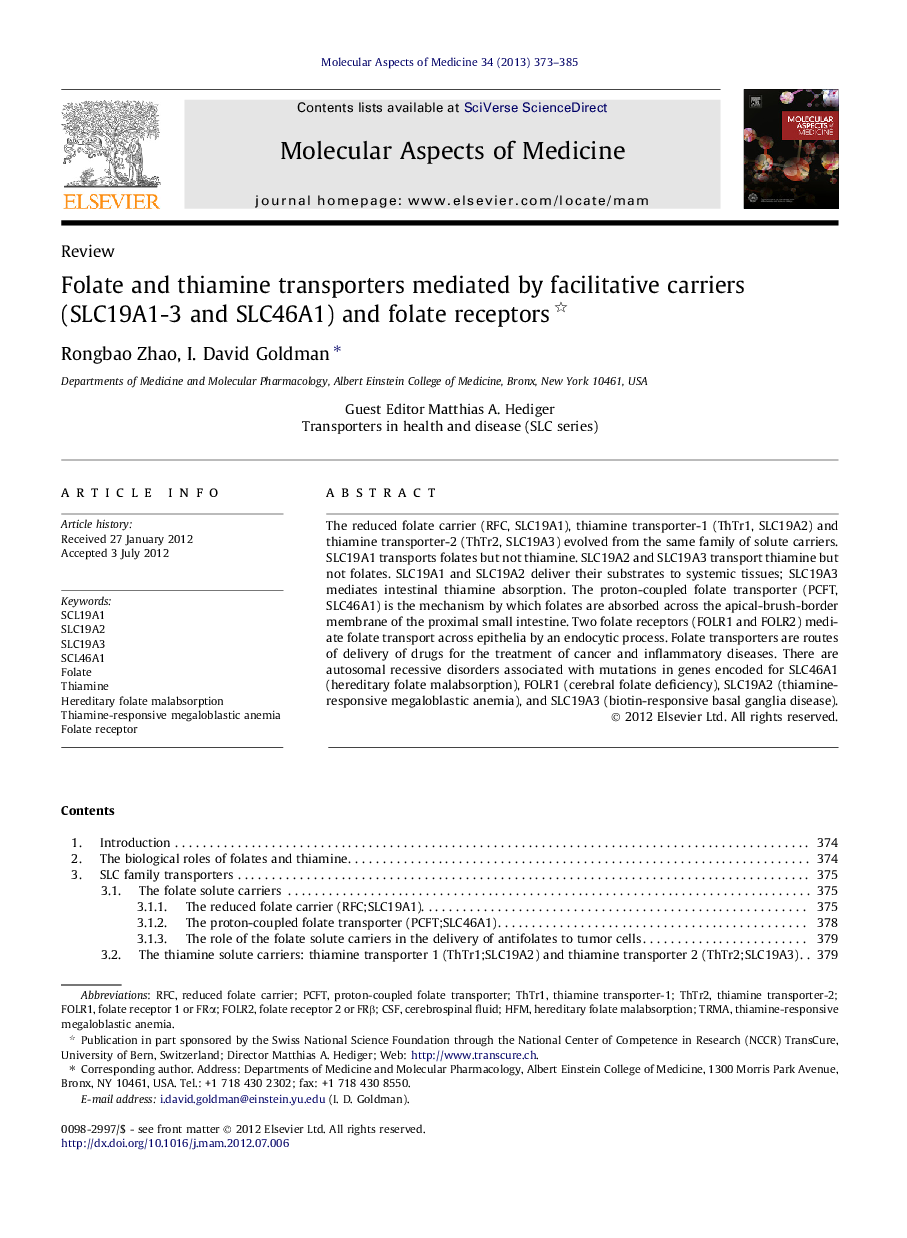| Article ID | Journal | Published Year | Pages | File Type |
|---|---|---|---|---|
| 8341539 | Molecular Aspects of Medicine | 2013 | 13 Pages |
Abstract
The reduced folate carrier (RFC, SLC19A1), thiamine transporter-1 (ThTr1, SLC19A2) and thiamine transporter-2 (ThTr2, SLC19A3) evolved from the same family of solute carriers. SLC19A1 transports folates but not thiamine. SLC19A2 and SLC19A3 transport thiamine but not folates. SLC19A1 and SLC19A2 deliver their substrates to systemic tissues; SLC19A3 mediates intestinal thiamine absorption. The proton-coupled folate transporter (PCFT, SLC46A1) is the mechanism by which folates are absorbed across the apical-brush-border membrane of the proximal small intestine. Two folate receptors (FOLR1 and FOLR2) mediate folate transport across epithelia by an endocytic process. Folate transporters are routes of delivery of drugs for the treatment of cancer and inflammatory diseases. There are autosomal recessive disorders associated with mutations in genes encoded for SLC46A1 (hereditary folate malabsorption), FOLR1 (cerebral folate deficiency), SLC19A2 (thiamine-responsive megaloblastic anemia), and SLC19A3 (biotin-responsive basal ganglia disease).
Keywords
Related Topics
Life Sciences
Biochemistry, Genetics and Molecular Biology
Biochemistry
Authors
Rongbao Zhao, I. David Goldman,
